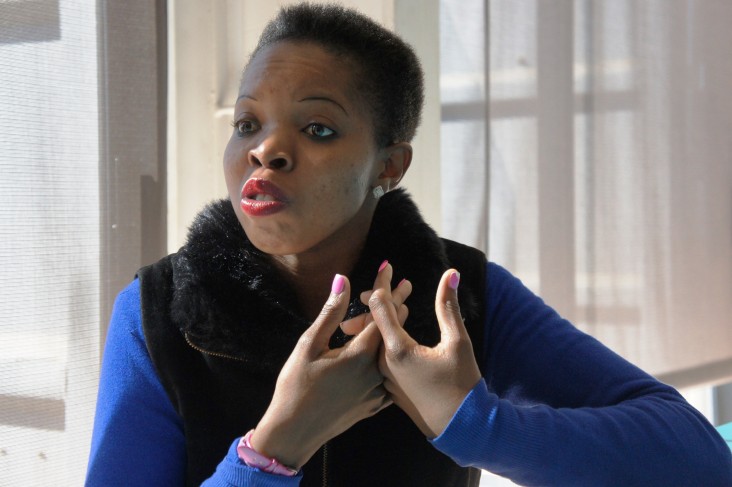Speeches Shim

August 2016—When Rebecca Ledwaba first started working as a counselor at the Khaya Center south of Johannesburg, she was embarrassed to talk with teenagers about sex, condoms, their personal choices and finances. She thought abstinence was the only solution, and couldn’t see how financial literacy could help.
Now, six years later, she passionately works with the community through USAID’s ASPIRES (Accelerating Strategies for Practical Innovation and Research in Economic Strengthening) program, inspiring youth to think about their health and encouraging them to make wise financial choices.
The program is designed to improve the economic security of highly vulnerable people, including those affected by HIV and AIDS, and children who are at risk of becoming separated from their families.
Ntombi Hoho says that she didn’t know anything about saving—living for the moment as young people often do. After attending courses as part of the financial literacy element of the program, Hoho now understands the need to consider her future and start saving while young. She is no longer eligible for a government grant and now saves part of the allowance she receives from members of her family.
“As a 19-year-old, I didn't know about saving for my future until I joined the ASPIRES program,” says Hoho.
A number of her friends are also beginning to think about post-secondary education. Starting to plan now will give them real options when the time comes.
The health element of the program, Vhutshilo, which means “life” in the Venda language, teaches orphans and other vulnerable children about HIV prevention. Important topics include negotiating safe behavior that includes saying no to sex, and using condoms regularly. This program also helps teenage girls consider the various contraceptives available and how to discuss the options with their partners.
During Vhutshilo, participants are encouraged to test for HIV toward the end of the sessions, and that is what helped 15-year-old Lulu* to discover her status. It was only five years earlier that Lulu’s mother Busi* discovered that they were both HIV-positive. Obviously shocked, she decided at the time to keep the news to herself, not sure how to tell her young daughter that she was infected.
Now, Lulu, who felt she benefited from the “dealing with grief and loss” session of the program, has come to terms with her status. She felt free and open to talk with her mother and friends about it. Her time working with Ledwaba and other counselors had already equipped her with information on disease prevention and how to ensure that she and her mother maintain a healthy lifestyle.
The participants praise the program for helping them cope with their difficult situations and prepare for their futures. As for Ledwaba, she is still excited to work every day with these children and continues to learn from them.
The ASPIRES program, which runs from 2013-2018, is funded by the U.S. President’s Emergency Plan for AIDS Relief. Over 130 youth from the Lehae community have benefited from the program, which continues to recruit more youth from the area's 8,000 households.
*Real names withheld to protect privacy.
LINKS
Follow @USAID_SAfrica, on Facebook, on Flickr, on YouTube

Comment
Make a general inquiry or suggest an improvement.